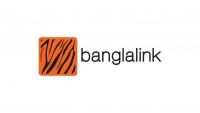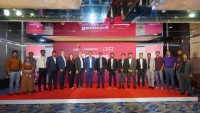
বুধবার ● ৯ ডিসেম্বর ২০১৫
প্রথম পাতা » English » BPO - THE RISE OF A NEW BUSINESS FRONTIER IN BANGLADESH
BPO - THE RISE OF A NEW BUSINESS FRONTIER IN BANGLADESH
Ahmadul Hoq Bobby, President, Bangladesh Association of Call Center & Outsourcing
BPO- Business Process Outsourcing refers to contracting certain aspects of the operations and responsibilities of a specific business process to a third party service provider. Appointing third party service providers to carry out specific tasks allows organizations a certain room for flexibility, in turn enabling the organization to focus more on core business strategies.
Originally associated with the manufacturing industry as primarily a cost-saving feature, BPO has evolved through the years with progresses in technology as well as changes in business processes, market structures and other various factors. BPO can refer to both ‘Back Office’ and ‘Front Office’ outsourcing. The former refers to assigning third party contractors to carry out internal business functions such as billing or purchasing, and the latter refers to outsourcing which includes customer-related services such as marketing or tech support.
BPO Generations
As stated earlier, the functions and scope BPO has evolved through the years, and industry experts typically outline six generations of BPO. At present, we are at the 4th Generation of BPO about to transition into the next.
The 1st Generation of BPO focused more on curtailing operational expenses while maintaining the same standard. In the early 1990s, business organizations started appointing contractors to execute non-core activities such as Human Resources or Finance and Accounting. This outsourcing was characterized by the reallocation of workers/employees within an organization and technology from client to provider in the same locations.
The 2nd Generation involved offshore outsourcing: contracting service providers ‘off the shore’, i.e. the third party contractors are located outside the company’s country. Another variant of this is ‘Near Shore outsourcing’, which means the external contractors are located ‘near’ the company’s country of origin.
The transition from the 1st Generation to 2nd was expedited by the Global Labour Arbitrage- an economic phenomenon where, as a result of the weakening/removal of barriers to international trade, job opportunities tend to move to nations where the cost of hiring employees as well as other business expenses is much lower than the company’s native country. On the flipside, the weakening of trade barriers also allow workers from LDCs to move to countries that offer better opportunities.
3rd Generation till present:
Moving onto the 3rd Generation, BPO focused heavily on industrialization and on streamlining the business processes to further enhance efficiency through adoption of Six Sigma approach. Six Sigma seeks to improve the quality of the output of a process by identifying and removing the causes of defects and minimizing variability inmanufacturing and business processes. It uses a set of quality management methods, mainly empirical, statistical methods, and creates a special infrastructure of people within the organization, who are experts in these methods.
During this phase, specific technological developments were achieved, including developments in delivery support, more sophisticated point solutions, increasing use of automation, and trends such as Software as a Service (SaaS) to name a few. While innovations such as these definitely helped to cut down operational costs, a major realization from the 3rd Generation was that the BPO industry as a whole contributed quite poorly when it came to devising new and innovative ways to achieve business value.
In fact, a survey by Horses for Sources and The Outsourcing Unit at The London School of Economics in 2011 showed that a gap indeed exists between achieving cost reduction and driving innovation. The survey respondents felt that 46 percent of outsourcing initiatives were effective at reducing operational costs. Yet only 11 percent of initiatives were seen by respondents as effective in providing new and creative methods of achieving business value.
Thus, when the industry moved on to the 4th Generation, it is not much of a surprise that the pressure is now on service providers to bridge this gap. Today, in the fourth generation of BPO, top service providers are addressing this divide bycultivating huge quantities of client data. The data is then analyzed to highlight the performance of each individual sector, the results of which can then be used to devise specific plans of action. This value addition includes everything from accelerated speed to market, loyalty in clients to efficient management.
By combining extensive industry expertise with descriptive, not to mention, predictive analytics, BPO providers are helping top executives understand exactly what is happening in their businesses at the moment, and what can be expected in the future. Using the analysis provided by the BPO providers, the businesses can strategize and gear up for the future. Thus, BPO providers play direct as well as active roles in their clients’ successes.
From such a model, the early signs of a 5th Generation are emerging. Using a combination of advanced mobile technology, analytics and SAAS, BPO providers are offering a flexible, on demand service to clients through customizable software platforms. This generation of BPO is evolving and developing at the speed of the technology that supports it.
What does the future hold?
There is no question that the history of BPO has been one of progress and development. So naturally, it can be expected that the industry will transform into a 6th Generation within the near future and it would be pertinent to start preparing for that already. With the rising popularity of social media, experts opine that platforms such as Facebook, Linked In etc will be playing a key role in shaping up the future of BPO. Next-generation BPO will be about enabling clients to become digital businesses and providers becoming digital service providers. Transforming processes through technologies like social media, mobility, cloud, and applying analytics across the end-to-end service platform to deliver insights and create new value. 6th generation BPOs will be the order of the day, wherein; social media technologies will help drive a new service vision in which social media will be used as a platform to build learning communities centered on processes provided via BPO.
Opportunities for Bangladesh in BPO
According to a study by Gartner, the total value of the global BPO market comes up to $300 billion. India, with a control over 63% of the off shore outsourcing industry, is currently one of the op outsourcing destinations in the world. Other countries, such as Philippines, Sri Lanka and even South Africa have also emerged as popular BPO destinations.
At present, India’s market size of the sector amounts to $80 billion, making it the world leader in BPO. Philippines, with a paltry $16 billion in comparison comes second, and Sri Lanka, with a market size of $2 billion, takes the third spot.
At such a scenario, it is important to ask where does Bangladesh stand in the picture?
The harsh reality is Bangladesh still lags far behind even the closest competitors despite holding certain key advantages. Primary among these advantages is that the nation has a large pool of workers which gives the country a competitive cost advantage over others. Moreover, the government has declared BPO a thrust sector and has taken several positive steps in promoting the development of this industry. This, coupled with the developments in ICT as part of the government’s vision of a Digital Bangladesh mean that the country has a bright future in BPO. Apart from these, the country is also located in a geographically advantageous position in terms of the international time zones.
As mentioned earlier, Bangladesh already has a large pool of skilled outsourcing workers and more international firms are coming to the country seeking an outsourcing solution. Training sessions, workshops, seminars are increasingly being organized by both public as well as private initiatives to encourage more from the young generation to come into this sector, and the response so far has been overwhelming.
With fast pace of change in workplace technology, businesses need to devise newer and innovative ways to streamline their operational processes. Businesses are increasingly switching from having in-house IT Departments to Buying IT As A Service from third party contractors. Moreover, companies are also implementing components of IT to make their operations more flexible and agile.
There are increasing demands for development of SaaS, Platform as a Service etc infrastructure and these are key areas where Bangladesh can venture into and set itself up as a BPO destination.
Regulatory Awareness
BPO still being in its early stages in the country, it requires a comprehensive regulatory framework to ensure transparency in operations as well as a sustainable pace of development. Proper policies should be designed and implemented on a regular basis to ensure data regulation as well as security of client’s information.
Moreover, the government should provide infrastructural support to the industry as well as various incentives to attract more people to work in this sector.
Concluding Remarks
Bangladesh remains an untouched, high-quality labor source. It has been ranked as a best destination for IT Outsourcing by the AT Kearney’s Top 50 Global Locations Index. It has intrinsic strengths which make it a major success as an outsource destination. These strengths include:
- A large, proficient English-speaking population
- Educated and tech-savvy personnel
- Cost-effective, abundant, motivated, and highly skilled workforce
- Governmentally recognized potential for IT-enabled services
- Liberal outsourcing laws and business incentives
- Not saturated like the India market, yet very similar in terms of landscape, people, and culture.
Moreover, a Global Benchmarking reportwas conducted with twenty eight countries around the world in Europe, Africa, Asia and South America that could compete with Bangladesh. The data compiled was then analyzed to reveal that in terms of language skills, Bangladesh was a country that used English as a first or second language, and ranked as seventh in the world. The demographics revealed that Bangladesh ranked fourth with the largest number of people falling into the 20-34 age group with a steady supply of fresh engineering graduates every year.
These, combined with the government’s vision of realizing a Digital Bangladesh by 2021 as well as acknowledgement of the importance of a well developed IT/ITES sector mean that Bangladesh is at an advantageous position to capture the ever expanding market for BPO.
While only time can tell where the country will stand in the years to come, it must be said that there are excellent opportunities for the country in this sector, and many of the prerequisites needed for proper development of BPO is already in place in the country.
It is now only a matter of seizing these golden opportunities.





 ICANN’s Multi-Stakeholder Approach and Bangladesh’s Role
ICANN’s Multi-Stakeholder Approach and Bangladesh’s Role  The Invisible Backbone: Why Bangladesh is falling behind in the Internet Revolution
The Invisible Backbone: Why Bangladesh is falling behind in the Internet Revolution  Applications for the 2025 APNIC Fellowship program are now open
Applications for the 2025 APNIC Fellowship program are now open  We work together with Bangladesh Community to move IPv6 adoption forward: Jia Rong
We work together with Bangladesh Community to move IPv6 adoption forward: Jia Rong  Signing Ceremony of MoU Between BIGF & ISOC Bangladesh
Signing Ceremony of MoU Between BIGF & ISOC Bangladesh  TMGB members’ children receive scholarships and educational materials
TMGB members’ children receive scholarships and educational materials  Tariqul Islam Joins WEJHA as General Manager
Tariqul Islam Joins WEJHA as General Manager  APRICOT 2025 will be held in Malaysia
APRICOT 2025 will be held in Malaysia  Global Brand Private Limited Introduced Lenovo IdeaPad Pro 5i Laptop
Global Brand Private Limited Introduced Lenovo IdeaPad Pro 5i Laptop 








